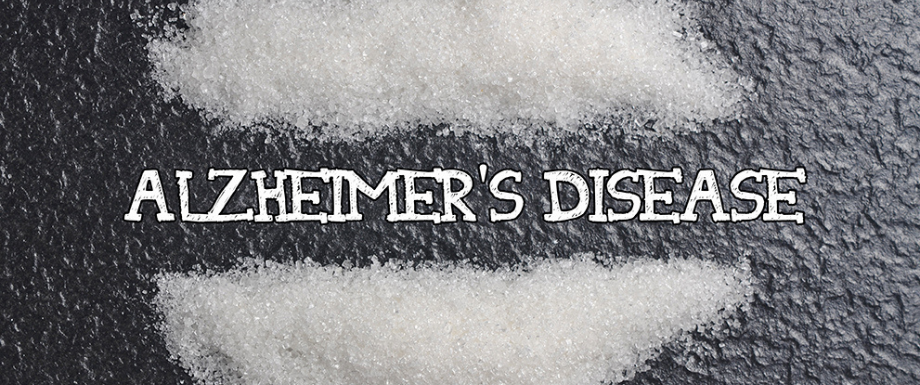Do you forget your mobile phone or vehicle keys just before you leave for work? Do you have difficulty remembering passwords? Did you sometimes put the coffee pot on the stove and forgot about it? Well, these incidents might look sporadic and of little consequence, but if you have diabetes you might have memory loss as a diabetes side effect.
What is dementia?
When faculties of thinking, reasoning, remembering, and general cognitive functioning is impaired, it is called dementia. People with dementia exhibit memory loss symptoms and tend to have difficulty with focus, language skills, problem-solving abilities, and emotions.
In the early stages, signs of memory loss are subtle and cannot be easily noticed. However, as the condition progresses, there is increased forgetfulness, inability to remember personal information, and in the severe stages, people with dementia need constant supervision.
Types of dementia
- Alzheimer’s disease
- Vascular dementia
- Lewy body dementia
- Mixed dementia
- Dementia due to frontotemporal disorders
Early signs of dementia
Most people tend to associate forgetfulness with their busy schedules or the stress of everyday life. However, as one crosses the age of 40, forgetfulness becomes rather common and episodes of forgetting small things tends to increase.
As such we tend to associate the elderly as bumbling and a little slow on the uptake, but we do not realize that this might have been an ongoing process that had started back in their forties. This tends to be a bit more pronounced in people with diabetes. In fact many do not know that memory loss or dementia might be one of the complications of diabetes.
Here are a few early signs of memory loss most people do not realize
Memory loss and dementia can appear as an inability to use language, reason, thinking, focusing, and communicating. It manifests in the form of:
- Changes in short-term memory. Things like forgetting what they had for breakfast, where they placed their keys.
- Asking repeated questions as they are not able to follow instructions
- Inability to follow directions
- Difficulty in finding the right words while talking
- Depression
- Lack of interest in daily activities and hobbies
- Lack of interest in personal hygiene and safety
- Disinterest in spending time with family members or friends
- Having difficulty in performing daily activities
- Disorientation when it comes to places, people, and time
Forgetfulness or memory loss can be caused due to various reasons. While some types of memory loss is reversible other conditions can be chronic and progressive leading to dementia (Alzheimer’s disease).
Causes of dementia
- Improper nutrition
- Vitamin deficiency
- Alcohol abuse
- Side effects of medication (High cholesterol medication statins and memory loss are linked)
- Type 2 and type1 diabetes
- High cholesterol
- Hypertension
- Dehydration
- High fever
- Thyroid problems
- Head injuries
Link between Diabetes and Dementia
People refer to Alzheimer’s disease as type 3 diabetes. In diabetes, there is chronic hyperglycemia. This means that a person with diabetes has high blood sugar levels for a prolonged time. Since blood travels through blood vessels, high sugar levels in blood tends to damage blood vessels over a period of time. When small blood vessels of the brain are damaged, it can lead to Alzheimer’s disease.
Alzheimer’s disease is a progressive illness where a person loses the functions of the brain gradually. It can even be a severe condition where there is severe damage to the brain leading to mortalities.
Some statistics suggest that people with diabetes are much more likely to have Alzheimer’s disease than people with normal blood sugar levels. Diabetes memory loss is caused due to damage of the small blood vessels in the brain. This damage is caused due to high blood sugar levels. This type of dementia is called vascular dementia.
Some factors linking diabetes and memory loss
- Type 1 diabetes and memory loss are closely linked with an increased risk of dementia
- People with complications of diabetes like high cholesterol are also at an increased risk of dementia
- People with high blood pressure and diabetes are at a risk of getting dementia and Alzheimer’s disease
- Diabetes and obesity are also contributing factors for blood vessel damage in the brain leading to dementia
- Diabetes also causes nerve damage which is another cause for memory loss
- High blood sugar levels especially high postprandial levels are linked to Alzheimer’s disease
- Since insulin regulates growth of nerves in the brain, insulin resistance causes harm to the cells of the brain and impairs nerve functions. This is another link to diabetes and dementia
Tips to prevent Dementia in diabetes
- Stop smoking. Smoking is a high risk factor for dementia
- Regulate blood pressure
- Maintain normal cholesterol levels
- Opt for a diabetes diet plan
- In order to prevent nerve damage in diabetes, include vitamin A, vitamin D, vitamin C, vitamin E and selenium along with vitamins B and omega-3 fatty acids in your diet
- Talk to your diabetes doctor regarding the use of probiotics in order to improve gut health. Brain is closely linked to the gut
- Avoid sedentary lifestyle. Get at least 150 minutes of physical activity per week
- Avoid low sugar levels as hypoglycemia can increase the risk of dementia. The portion of the brain that controls memory (hippocampus) needs constant supply of glucose in order to function
